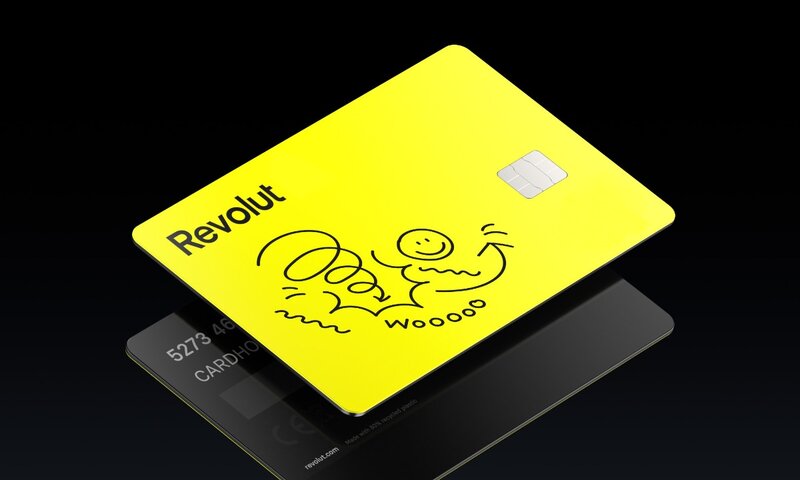What is Handypay?
Launched in 2019 by OurMoneyMarket, Handypay markets itself as a provider of flexible home improvement payment plans, offering loans of up to $75,000.
The Adelaide-based lender's loans are specifically designed for homeowners looking to make improvements to their home, such as those wishing to add pools, renovate their kitchens or install solar energy systems.
According to Handypay, those best suited to its products are:
- Homeowners
- Those looking to renovate their home
- Those moving into their first home
- Those looking to furnish their home
However, Handypay's CEO and co-founder Adam Sutherland said the loans can be used for anything.
"Handypay is a simple, fast and low cost solution way to purchase what you need today and pay for it over time, in a way that is more tailored to your budget," Mr Sutherland told Savings.com.au.
"We work with large vendors in areas such as massage chairs, medicine and education, however the target market is home improvement and home renovations and all things associated with the home.
"But the funds are released to the customer so it's theirs to spend."
Handypay offers standard personal loans between $2,000 and $75,000, including a lower-rate 'green loan', which can be used for things like solar panels.
Uniquely, it also offers a buy now, pay later (BNPL) style payment plan for renovators, explained below.
Handypay's 0% interest-free loan
In addition to offering standard personal loans, Handypay offers an interest-free loan, similar to buy now, pay later (BNPL) services like Afterpay. This 0% loan is available for amounts between $500 and $5,000, and can be deposited straight into the customer's account instead of going through a third party.
Mr Sutherland said the payment plans will fit most peoples' budgets.
"We offer a low fee product, that offers interest-free terms up to 12 months, meaning that unlike other BNPL products where customers often start struggling with the repayments as it usually needs to be repaid over a 2-month period, our 12-month repayment period means less stress," Mr Sutherland said.
However, this interest-free option does charge a one-off upfront fee of $250, which is 5% of the maximum loan amount of $5,000. It also charges a $35 late fee.
After the 0% term ends, it reverts to 9.99% p.a, which is below the 19.99% and higher revert rates that similar loans offered by other providers charge, according to Handypay.
Handypay personal loan: Rates, fees and features
Handypay interest rates
Like most personal loan lenders, Handypay's interest rates scale depending on your application. If you have a good credit score, then you can get an interest rate as low as 6.75% p.a. (6.96% p.a. comparison rate*), but this can go as high as 20.99% p.a. for those with a bad credit history.
For the Green loan, interest rates start from 5.79% p.a. (6.34% p.a. comparison rate*).
"The Green loan's market-leading interest rate of 5.79% p.a. for up to 10 years for the lowest possible repayment amount makes investing in solar more affordable than ever," Mr Sutherland said.
Handypay fees
Handypay does not charge any ongoing fees, late repayment fees or dishonour fees on direct debits for its loans, although there is an upfront fee when applying that's between 1.5% and 6% of the total loan amount.
On that maximum loan balance of $75,000, this would be between $1,125 and $4,500, which would be quite a lot
The average personal loan upfront fee according to Savings' research is $270, while many charge $0. A common upper threshold is between $600 and as much as $1,800, depending on the type of loan it is.
But borrowing for a smaller amount would result in smaller upfront fees.
Handypay features
Handypay says it offers the following features to customers:
- Large loan amounts up to $75,000
- Fast, online approval, with decisions made in minutes
- Longer loan terms up to 10 years (standard personal loan terms are five to seven) for Green products
- A pure interest-free period of 12 months, with a lower revert rate than the average
- Interest-free cash deposited straight to the customer instead of going through a third-party
- Lower ongoing fees than average
- No penalties for making additional repayments
"Unlike many other non-bank personal loan providers, we offer weekly, fortnightly and monthly repayments, meaning that we're able to align the payments to a customer's pay cycle," Mr Sutherland said.
"This is a great way to protect customers' credit scores and avoid any late fees."
Handypay: Credit checks and responsible lending
Like most reputable providers, Handypay does check your credit score when you apply, and it can impact your application. But according to Mr Sutherland, your repayment and employment history are more important.
"We understand that sometimes people can have hiccups and often don't find out what a credit score is until it's too late," he said.
"We are more focused on your repayment history over a longer period of time, and look to reward customers who have a decent track record of good repayment performance with the best possible rate on a personal loan."
To apply for any of Handypay's products, customers must:
- Earn at least $25,000 per year after-tax
- Have a decent credit history with no prior defaults
- Be 18 years old at least, and be working or on an eligible pension
How does Handypay compare to other personal loans?
In terms of interest rates, Handypay compares pretty well. The starting interest rates of 5.79% p.a. and 6.75% p.a are pretty close to the lowest personal loan rates, which hover around the low 5% mark. On average, unsecured loans tend to average out at around 10-12% p.a, so these rates are below average.
The fees on the other hand can be quite high. For a high loan amount, a maximum 6% application fee can be a couple of thousand dollars, compared to the industry average of around $270. It doesn't charge ongoing fees, but nor do many other personal loans.
The interest-free option's $35 late fee and $250 upfront fee is much higher than those of typical buy now, pay later products. Afterpay, for example, doesn't charge any upfront fees and charges $10 for late fees, for a maximum of four weeks.
When comparing Handypay's products with other loans, consider how it stacks up with multiple other products based on:
-
The fees, or lack thereof
-
How low the interest rate is
-
How much you need to borrow: there’s no need to borrow $20,000 if you only need $10,000
-
What you’re borrowing for
-
The flexibility of the loan, like whether you can make extra or more frequent repayments
-
And of course, whether other products (like, say, a credit card) could be more suitable
If you're using it for home improvements, it's possible you could use a construction loan instead, which would likely have a lower interest rate.
Personal loan pros and cons
Personal loans aren't for everybody. While they have some advantages:
- Like flexible access to funds to buy what you want, when you want it
- The ability to use leftover funds for other purchases
- And having lower average interest rates than credit cards
They also can still have quite high interest rates. Paying for something outright is much cheaper, and even though a loan might look cheap, a personal loan on thousands of dollars, like a renovation, can lead to thousands more in interest charges and fees.
Compare Handypay to other personal loans, buy now, pay later platforms and even construction loans to see which product is the right choice for you.
Photo via Handypay



 Harrison Astbury
Harrison Astbury
 Harry O'Sullivan
Harry O'Sullivan